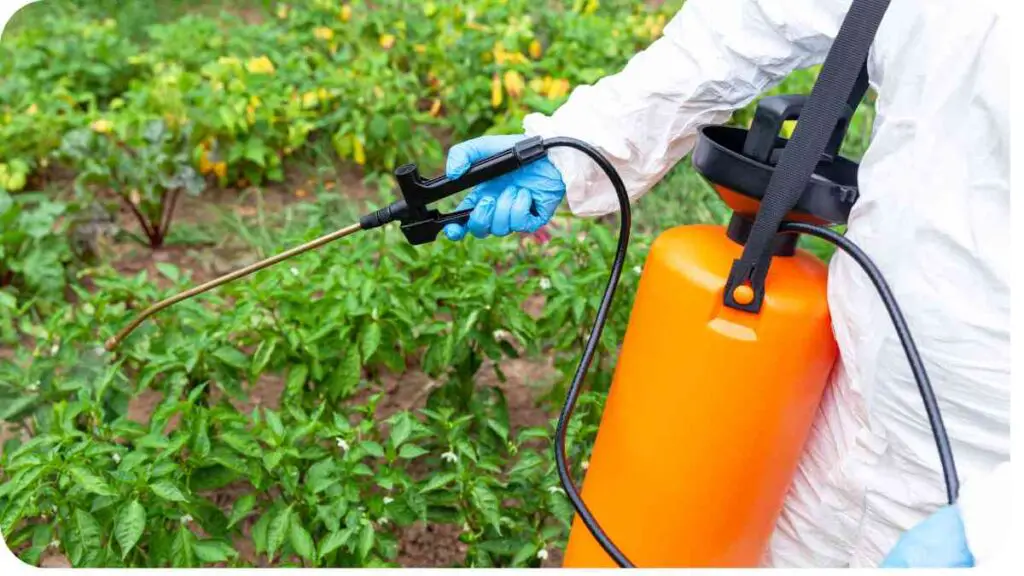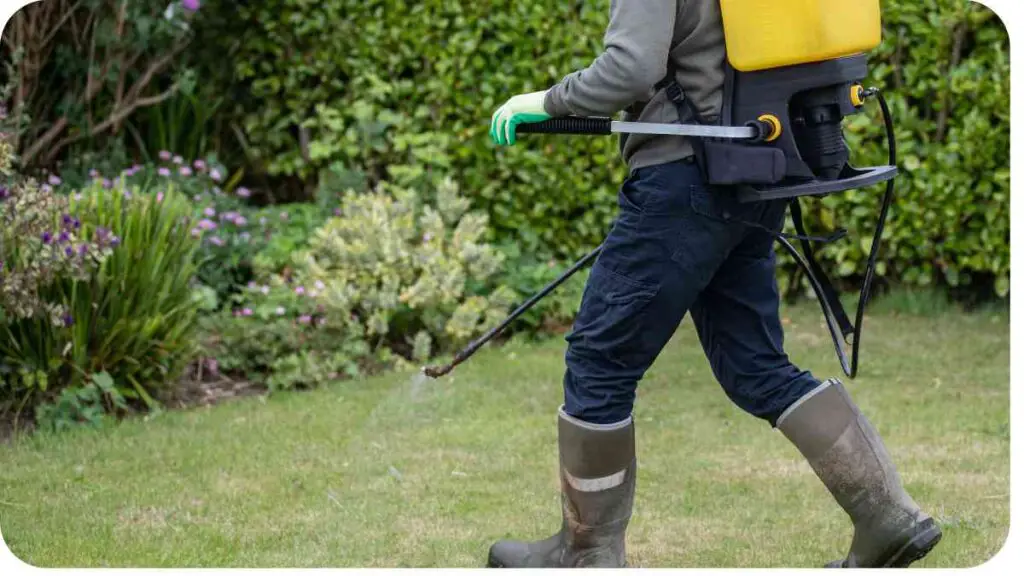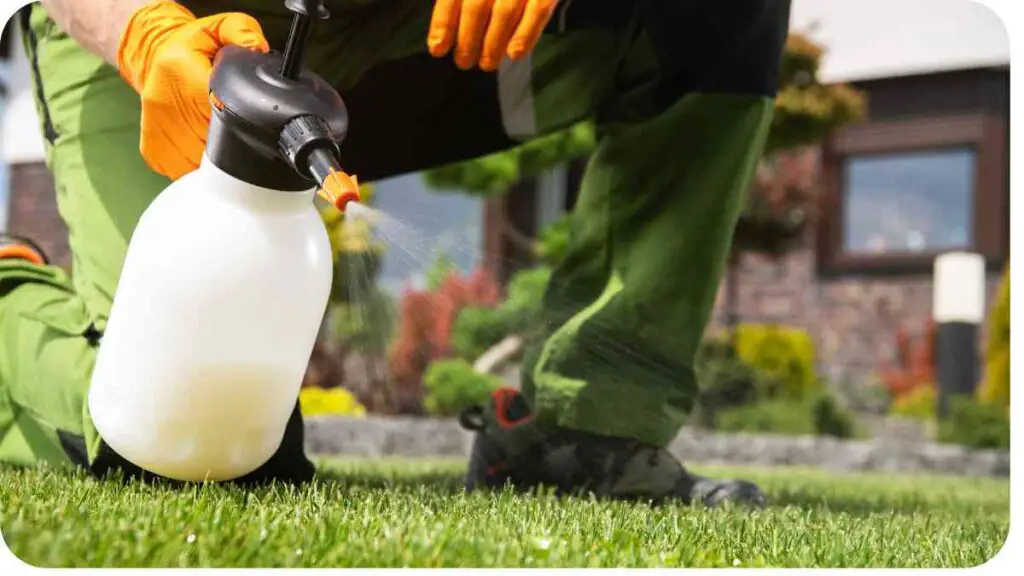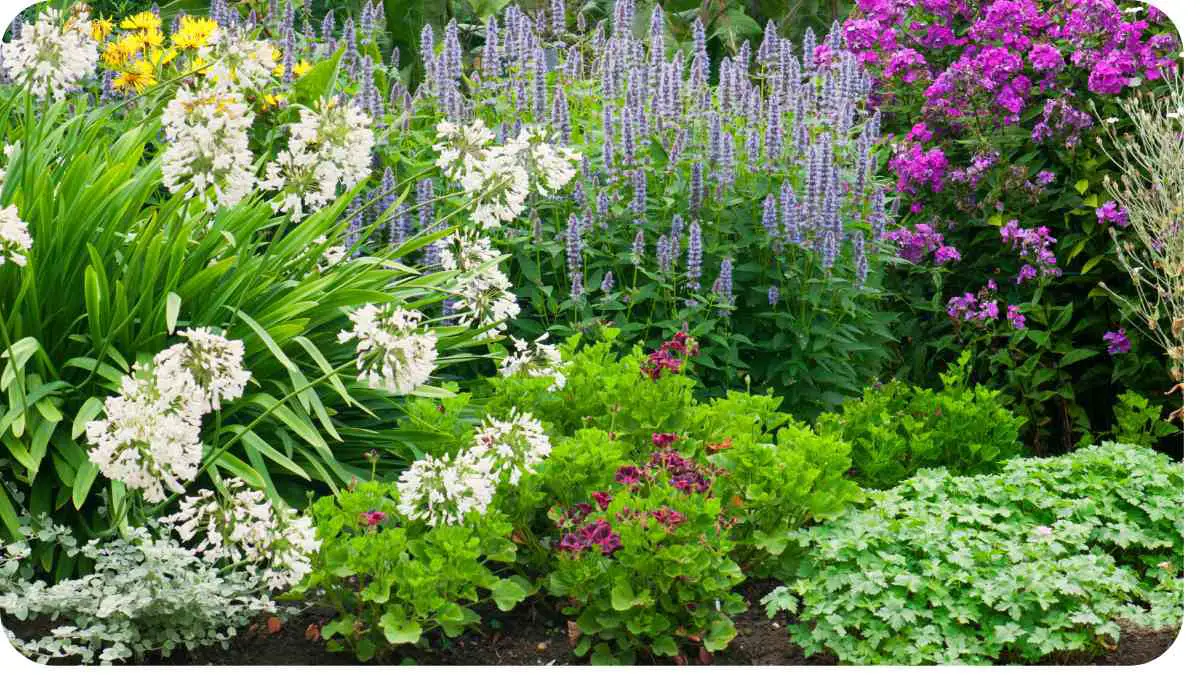Weeds can be a persistent nuisance in flower beds, competing for resources and detracting from the beauty of your garden. Finding the right weed killer is crucial to maintaining a healthy and vibrant flower bed. In this article, we’ll explore the various types of weed killers available and provide recommendations for what might work best for your flower beds.
| Key Takeaways |
|---|
| Choose weed killers carefully based on the specific needs of your flower beds. |
| Consider factors such as safety, effectiveness, and environmental impact before making a selection. |
| Organic weed killers offer safer alternatives but may require multiple applications for desired results. |
| Proper application techniques and safety precautions are essential when using weed killers in flower beds. |
| Explore alternative methods for weed control, such as mulching and hand-pulling, to complement weed killer use. |
2. Understanding Weed Killers

Before delving into specific types of weed killers, it’s essential to understand how they work. Weed killers, also known as herbicides, target unwanted plants by disrupting essential processes like photosynthesis or inhibiting root growth. Different weed killers employ various mechanisms to achieve this goal.
Regular soil replenishment ensures optimal plant growth and minimizes weed proliferation. Check out our guide on how often should I replace my potting soil? for expert tips on maintaining healthy flower beds.
3. Types of Weed Killers
Chemical Weed Killers
Chemical weed killers are formulated with synthetic compounds designed to kill weeds effectively. They often contain active ingredients like glyphosate, which targets a broad spectrum of weeds. These products are potent and typically provide quick results but may pose risks to human health and the environment.
| Chemical Weed Killer | Pros | Cons |
|---|---|---|
| Glyphosate-Based | – Broad-spectrum control | – Potential harm to non-target plants |
| – Fast-acting | – Environmental concerns |
Organic Weed Killers
Organic weed killers utilize natural ingredients derived from plants or minerals to control weeds. While they may take longer to show results compared to chemical counterparts, they are often considered safer for the environment and may be preferable for use in flower beds.
| Organic Weed Killer | Pros | Cons |
|---|---|---|
| Vinegar-Based | – Environmentally friendly | – May require multiple applications |
| – Safe for pets and wildlife | – Less effective on established weeds |
4. Considerations Before Choosing a Weed Killer

Before selecting a weed killer for your flower beds, there are several factors to consider to ensure you make the right choice.
Safety
Safety should always be a top priority when using weed killers, especially in areas where pets or children frequent. Choose products with low toxicity and follow application instructions carefully to minimize risks.
Effectiveness
Consider the effectiveness of the weed killer against the types of weeds commonly found in your flower beds. Some products may be more suitable for broadleaf weeds, while others target grassy weeds.
Tired of feline intruders ruining your flower beds? Discover effective strategies on how to keep cats out of your flower beds and safeguard your garden oasis from unwanted visitors.
Environmental Impact
Be mindful of the environmental impact of the weed killer you choose. Opt for products that break down quickly in the soil and minimize harm to beneficial insects and organisms.
5. Best Weed Killers for Flower Beds
Now that we’ve covered the basics let’s dive into some of the best weed killers for flower beds.
Glyphosate-Based Weed Killers
Glyphosate-based weed killers are widely used for their effectiveness in controlling a broad spectrum of weeds. However, they should be used with caution as they can also harm desirable plants.
Vinegar-Based Weed Killers
Vinegar-based weed killers are a safer alternative for use in flower beds. The acetic acid in vinegar effectively kills weeds by drying out their foliage. While vinegar is non-selective and may harm desirable plants, it breaks down quickly in the soil, minimizing long-term effects.
Corn Gluten Meal Weed Suppressors
Corn gluten meal is a natural byproduct of corn processing and acts as a pre-emergent weed suppressor. It prevents weed seeds from germinating, making it an effective option for weed control in flower beds.
Herbicidal Soap
Herbicidal soaps are another organic option for controlling weeds in flower beds. These soaps work by penetrating the waxy cuticle of weeds, causing dehydration and death. They are safe to use around pets and wildlife but may require multiple applications for effective control.
6. Application Tips
Regardless of the type of weed killer you choose, proper application is key to achieving the best results. Follow these tips for successful weed control in your flower beds:
- Read and follow the label instructions carefully.
- Apply weed killer on a calm day to minimize drift.
- Avoid spraying weed killer on windy days to prevent unintended damage to nearby plants.
- Apply weed killer when weeds are actively growing for optimal absorption.
Prepare your flower beds for springtime splendor! Our comprehensive guide on how to clean flower beds after winter offers essential tips to revitalize your garden space, including weed management techniques.
7. Safety Precautions
When using weed killers in flower beds, take the following safety precautions to protect yourself, your family, and the environment:
- Wear protective clothing, including gloves, long sleeves, and eye protection.
- Keep pets and children away from treated areas until the product has dried completely.
- Store weed killers in a secure location out of reach of children and pets.
- Properly dispose of empty containers according to local regulations.
Enhance the beauty of your flower beds with expertly laid pavers! Explore our guide on how to lay pavers in flower beds for step-by-step instructions and elevate the aesthetic appeal of your outdoor space.
8. Alternative Methods for Weed Control

In addition to using weed killers, there are several alternative methods for controlling weeds in flower beds, including:
- Mulching to suppress weed growth and conserve soil moisture.
- Hand-pulling weeds regularly to prevent them from becoming established.
- Using landscape fabric or plastic mulch to smother weeds and prevent sunlight from reaching the soil.
Overwhelmed by weed-infested flower beds? Learn actionable steps on how to get rid of flower beds in full weeds and reclaim your garden sanctuary with our expert advice.
9. Conclusion
Keeping weeds at bay in flower beds requires careful consideration of the options available and the specific needs of your garden. By understanding the different types of weed killers and their applications, you can choose the best solution for maintaining a beautiful and healthy garden ecosystem. Remember to prioritize safety and environmental stewardship in your weed control efforts for long-term success.
Further Reading
- Best Weed Killers for Flower Beds: This article provides an in-depth look at some of the best weed killers specifically designed for use in flower beds. It discusses various types of weed killers and their effectiveness in controlling different types of weeds.
- Kill Weeds, Not Flowers: Learn how to effectively control weeds in your flower beds without harming your precious flowers. This resource offers practical tips and techniques for keeping weeds at bay while preserving the beauty of your garden.
- How to Kill Weeds in Flower Beds: Discover expert advice on the most effective methods for killing weeds in flower beds. From chemical options to organic alternatives, this article covers everything you need to know to maintain a weed-free garden.
FAQs
How do I choose the right weed killer for my flower beds?
To choose the right weed killer for your flower beds, consider factors such as the types of weeds you’re dealing with, safety concerns, and environmental impact. Look for products that target the specific weeds in your garden while minimizing harm to desirable plants and wildlife.
Are organic weed killers effective in flower beds?
Organic weed killers can be effective in flower beds, but they may require multiple applications to achieve desired results. Additionally, organic options may take longer to show results compared to chemical weed killers. However, they are often considered safer for the environment and may be preferable for use around pets and wildlife.
How often should I apply weed killer in my flower beds?
The frequency of weed killer applications depends on several factors, including the type of weed killer used, the types of weeds present, and environmental conditions. Follow the label instructions provided with the product for guidance on application frequency. In general, it’s best to apply weed killer when weeds are actively growing for optimal absorption.
Is it safe to use weed killer in flower beds with edible plants?
It’s important to exercise caution when using weed killer in flower beds with edible plants. Some weed killers may contain chemicals that can be harmful if ingested. Choose products labeled as safe for use around edible plants, or consider using organic weed control methods to minimize risks to human health.
What are some alternative methods for controlling weeds in flower beds?
In addition to using weed killers, there are several alternative methods for controlling weeds in flower beds. These include mulching to suppress weed growth, hand-pulling weeds regularly to prevent them from becoming established, and using landscape fabric or plastic mulch to smother weeds and prevent sunlight from reaching the soil.

For 15 years, Hellen James has worked in the gardening industry as an expert and landscape designer. During her career, she has worked for a variety of businesses that specialize in landscaping and gardening from small firms to large corporations.

